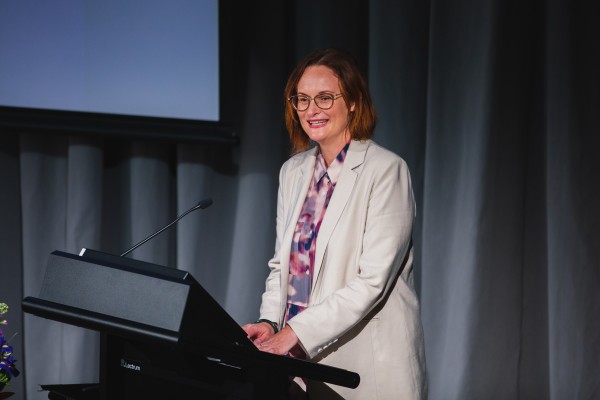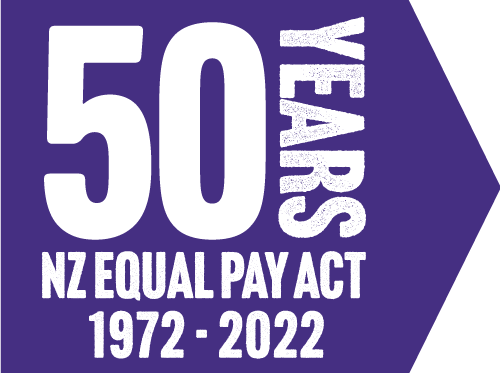- Issue date
- 18 October 2022
Kellie Coombes, Secretary for Women and Chief Executive of Manatū Wāhine Ministry for Women, explores why equal pay is so important, 50-years on from legislation outlawing sex-based discrimination.
The 50-year anniversary of the Equal Pay Act tomorrow provides New Zealanders a chance to reflect on the progress we’ve made and the work ahead as we strive towards equal pay for equal work.
The 1972 Act outlawed discrimination in wage rates between men and women performing the same job. Until the Act passed, it was legal to set separate rates of pay for men and women and exclude women from certain types of work.
Achieving equal pay is one factor that would contribute to the elimination of the gender pay gap. The gender pay gap is an official statistical measure, both in New Zealand and around the world, that compares the average earnings of men with that earned by women.
Since Stats NZ started measuring the national gender pay gap in 1998 (16.3%), we’ve seen that, on average, New Zealand men earn more than women. Today the gender pay gap is 9.2%.
When we talk about this in dollars, for every $1 a man makes in New Zealand, a woman earns $0.91. Breaking this down further, Pākehā women make $0.94, Asian women make $0.89, and Māori and Pacific women make $0.84 in comparison.
Some of the reasons put forward to explain away the gender pay gap are that women earn less because they have fewer qualifications, choose to work in industries that historically pay less or don’t want to work full-time. But this isn’t true. Women are gaining tertiary qualifications at a higher rate than men. More women than ever before are looking for part-time and full-time work. Women also do the majority of unpaid household and family caring work. But we see time and time again that women’s careers stall if they work part-time to balance their paid and unpaid work or take longer periods of leave to raise children.
There have been some solid gains made to reduce the gender pay gap since the Act passed 50 years ago. These include landmark pay equity settlements in the health, education, and services sectors, and public and private organisations taking initiative to report on and address their gender pay gap.
Recent improvements came in 2020 when the Government updated the Equal Pay Act to replace the court-based approach to pay equity claims with an accessible process based on the existing bargaining framework in the Employment Relations Act.
Currently there are 27 pay equity claims in progress covering over 200,000 New Zealanders. More claims are raised as the pay equity process becomes better understood. For those whose workforces are amid a claims process, it can seem slow, but we are making progress. So far there have been seven pay equity settlements in Aotearoa, which have led to pay corrections for more than 104,000 people.
Eliminating the gender pay gap and achieving equal pay for all New Zealanders is not just good for women, it is good for everyone. Settlements can increase wages, improve workplace conditions, and open up training opportunities for all employees.
Manatū Wāhine Ministry for Women is partnering with other agencies including the Public Service Commission’s Pay Equity Taskforce and the Ministry of Business, Innovation, and Employment, to progress initiatives to improve the employment conditions for men and women, including policy and action around equal pay.
As we commemorate this milestone on October 20, we welcome you to join us online to explore 50 years of the Equal Pay Act 1972 through a panel event.
Aotearoa New Zealand has a proud history of advancing equal rights. Since the early 20th century, women in New Zealand and around the world have fought for equal pay in the workforce. Today, while we’ve made progress, there is still a way to go to achieve equal pay for everyone.
I acknowledge and celebrate all those who have challenged the status quo and campaigned for their rights, and those who are continuing in this fight today. This includes Equal Employment Opportunities Commissioner Dr Saunoamaali'i Karanina Sumeo whose recent research has highlighted the pay gap faced by Pacific women.
In 2022, the 129th anniversary of women’s suffrage, it would be fantastic to see everyone working to fix the gender pay imbalance to ensure a fairer society for all.
The Equal Pay Act sets a clear bottom line. Women being paid less than men is unacceptable and needs to be consigned to the history books.
New Zealanders deserves equal pay, it’s only fair.
Join the Equal Pay Act 50th Anniversary event on 20 October (5.30-6.30pm): https://bit.ly/3VhR5Ll.
Kellie Coombes, Te Tumu Whakarae mō te Wahine | Secretary for Women and Chief Executive of Manatū Wāhine Ministry for Women

Kellie Coombes speaking at the Suffrage 129 event at the National Library of New Zealand,
19 September 2022.

